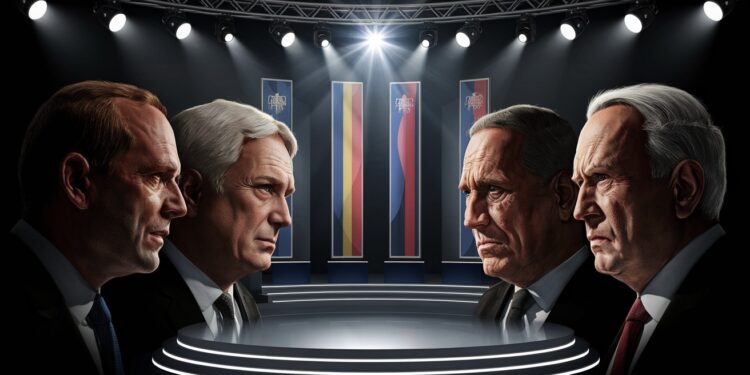The starting gun has been fired on Germany’s 2025 federal election campaign, and the race to determine the next government is shaping up to be a cliffhanger. In the wake of the dramatic collapse of Chancellor Olaf Scholz’s “traffic light” coalition, new opinion polls are revealing significant shifts in the political landscape that could upend predictions for the February 23 vote.
CDU/CSU Surges as SPD and Greens Slip
The center-right Christian Democratic Union (CDU) and its Bavarian sister party the Christian Social Union (CSU) have seen a boost in the polls in recent weeks. A Guardian analysis of polling data shows the CDU/CSU bloc, led by Friedrich Merz, averaging around 27-28% support – putting them neck-and-neck with, or even slightly ahead of, Scholz’s Social Democrats (SPD).
The SPD, which won a narrow victory in the 2021 election to propel Scholz into the chancellorship, has seen its support slide to an average of 25-26% as the party grapples with the fallout from the government’s untimely demise. Meanwhile, the Greens led by Vice Chancellor Robert Habeck and Foreign Minister Annalena Baerbock have also taken a hit, dropping a couple points to the 16-18% range.
Far-Right AfD Gains Ground
Perhaps the most concerning trend for many observers is the rise of the far-right Alternative for Germany (AfD) party. The anti-immigrant, Eurosceptic party has climbed to an average of around 14-15% in recent surveys, not far off the 16.5% they have reached at their peak. AfD co-leader Alice Weidel has been a vocal critic of the government’s immigration and EU policies.
FDP Fights for Survival, Left Parties Struggle
The liberal Free Democrats (FDP), whose exit from the coalition triggered the snap election, are fighting for their political life. Led by former Finance Minister Christian Lindner, the FDP is hovering right around the 5% threshold parties need to enter parliament. The socialist Left party is in a similar predicament, while Sahra Wagenknecht’s new breakaway movement has eclipsed her former colleagues for the moment.
Coalition Calculations Begin
With no party likely to win a majority, speculation is already rampant about potential coalition scenarios after the election. Merz’s CDU/CSU would likely need partners from the SPD or Greens to govern, unless they teamed up with the FDP and AfD – a combination Merz has ruled out. The SPD and Greens could revive their partnership, but would almost certainly need a third party to reach a majority.
“The situation is highly volatile and fluid,” said one political analyst familiar with the polling data. “A lot can still change, but there’s no question this will be one of the most unpredictable and consequential German elections in recent memory.”
Merz Goes on Attack as Scholz Fights for Survival
On the campaign trail, the gloves have already come off, with Merz lashing out at the Greens as “unworldly” and accusing Scholz of running a “shattered” government. The normally mild-mannered Scholz has fought back, slamming the conservatives’ record on the economy and touting his government’s successes before the breakup.
With the political terrain shifting by the day, one thing is clear: the 2025 German election will be a battle royale with major implications for Germany, Europe and the world. As the major parties jockey for position and the campaign rhetoric heats up, voters face a stark choice about the country’s future direction.








